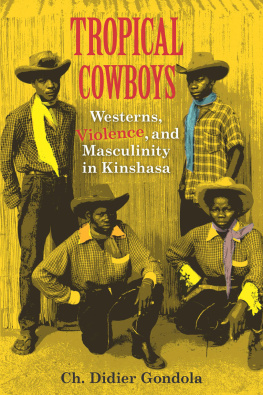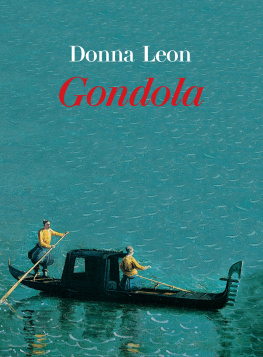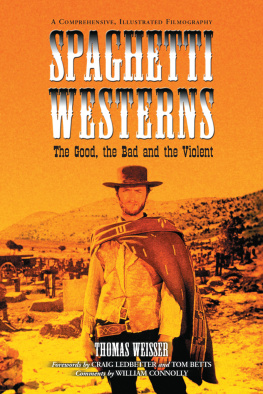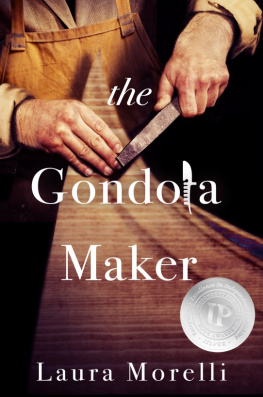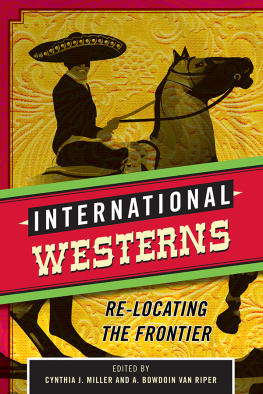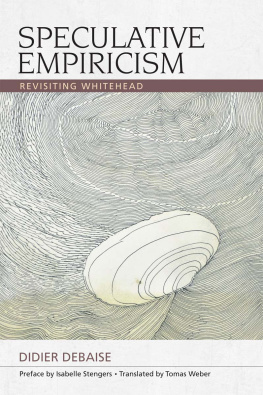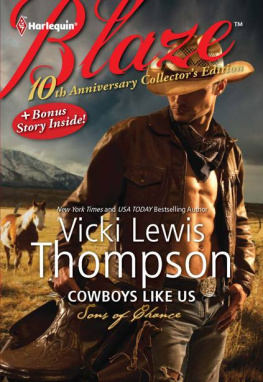This book is a publication of
Indiana University Press
Office of Scholarly Publishing
Herman B Wells Library 350
1320 East 10th Street
Bloomington, Indiana 47405 USA
iupress.indiana.edu
2016 by Ch. Didier Gondola
All rights reserved
No part of this book may be reproduced or utilized in any form or by any means, electronic or mechanical, including photocopying and recording, or by any information storage and retrieval system, without permission in writing from the publisher. The Association of American University Presses Resolution on Permissions constitutes the only exception to this prohibition.

The paper used in this publication meets the minimum requirements of the American National Standard for Information SciencesPermanence of Paper for Printed Library Materials, ANSI Z39.48-1992.
Manufactured in the United States of America
Library of Congress Cataloging-in-Publication Data
Names: Gondola, Ch. Didier, 1966- author.
Title: Tropical cowboys : Westerns, violence, and masculinity in Kinshasa / Ch. Didier Gondola.
Other titles: African expressive cultures.
Description: Bloomington : Indiana University Press, 2016. | Series: African expressive cultures | Includes bibliographical references and index.
Identifiers: LCCN 2015043496 | ISBN 9780253020666 (cloth : alk. paper) | ISBN 9780253020772 (pbk. : alk. paper) | ISBN 9780253020802 (ebook)
Subjects: LCSH: GangsCongo (Democratic Republic)Kinshasa. | Young menCongo (Democratic Republic)KinshasaSocial conditions19th century. | MasculinitySocial aspectsCongo (Democratic Republic)Kinshasa. | Youth and violenceSocial aspectsCongo (Democratic Republic)Kinshasa. | Kinshasa (Congo)Social conditions19th century.
Classification: LCC HV6439.C752 G66 2016 | DDC 302.3409675112dc23
LC record available at http://lccn.loc.gov/2015043496
1 2 3 4 5 21 20 19 18 17 16
Acknowledgments
L ONG IN COMING and the fruit of toils and many a sleepless night, this book would have never seen the light of day had it not been for a number of persons and institutions that I would like to acknowledge and thank. When it was still in gestation, this research project benefited from two generous grants, a New Frontiers in the Arts and Humanities grant from the Indiana University Office of the Vice President for Research and a U.S. State Department Fulbright Fellowship that allowed me to spend time in the archives in Brussels and conduct fieldwork in Kinshasa in 20082009. Dean William Blomquists generous leave package helped me afford spending two academic years in Kinshasa and Nantes, respectively, and maintaining a home in Indianapolis.
I am grateful to Charles Ambler, Phyllis Martin, and Carolyn Brown for reading the earliest draft chapter and providing insightful feedback and encouragement when a book manuscript on the Tropical Cowboys was still a long, long shot. A number of colleagues and former colleagues at IUPUI, including Annie Coleman, now a faculty at Notre Dame, Danna Kostroun, Nancy Robertson, Marianne Wokeck, Robert Rebein, and William Jackson, read portions of this manuscript at various stages in its development. Their thoughtful criticism and valuable comments were most helpful.
The bulk of the book manuscript took shape in 20112012 at the Institut des tudes Avances in Nantes, France, where I resided as a Eurias fellow. The idyllic location of the IEA Nantes, nestled within the confluence of the Erdre and the Loire rivers, where writing could flow uninterrupted, and the welcoming and stimulating intellectual company it keeps gave the manuscript its cohesion. I thank the entire 20112012 cohort of fellows and the IEA staff for making my stay in Nantes both pleasurable and productive.
In addition to the IEA Nantes, I had the privilege to present my research on the Tropical Cowboys at other venues in Europe and North America. I am indebted to Vronique Giroud, Karin Barber, Susanne Gehrmann, Dominic Thomas, Michael Barrett, Amandine Lauro, John Clark, and John Cinnamon for inviting me to share my project with their faculty and students.
I owe no small debt of gratitude to Susann Baller, Dianne Stewart, Maria Eriksson-Baaz, Heike Raphael-Hernandez, Sarah Demart, Kristien Geenen, Charles Tshimanga, and Filip De Boeck without whose friendship and encouragement this project would still be on the drawing board. While writing this book, I faced several informational and conceptual hurdles that threatened to impede its progress. A number of scholars that I solicited, including Guido Convents, Wyatt MacGaffey, Jan Vansina, Enika Ngongo, and Fu-Kiau Busenki, helped me sail through them. I would be remiss not to thank Katrien Pype, Beverly Stoeltje, Peter Bloom, Stephan Miescher, and Jennifer Cole, whose keen eye and theoretical command sharpened the dull edges of some of my narratives. Needless to say, I bear full responsibility for whatever flaws and failings that remain in this book.
Many of the materials used in this book were located with the help of a number of librarians and archivists. Constance Cournde, a gem for IEA fellows, left no stone unturned in her search for materials I ordered through the IEA interlibrary loan network. I also would like to thank the staff of the African Archives and the Bibliothque Ministrielle in Brussels for their assistance and diligence.
The late Pre Buffalo (aka Jeff de Laet) and many other informants (some of whom have since also passed) have shared a wealth of oral and written materials with me. I am grateful for their generosity and hope this book did not betray their expectations. Friends and relatives who assisted me with this research, each in his or her own way, are too numerous to list. My dear friend Raymond Mututala went above and beyond in helping me during my fieldwork in Kinshasa. I also thank Timothy Gondola, Nina Gondola, Alain Ngulungu, Placide Gondola, and Jos Lusende for their moral support.
Special thanks are due to Victoria Scott, whose corrections and queries have improved the text significantly, and to my editor, Dee Mortensen, and her assistant, Sarah Jacobi. Dee is everything an author would want in an editor. Her meticulous approach and soft touch have profoundly impacted my book in countless ways.
Last but not least, my son Noah (aka ) gave me the strength and urgency to finish this book. One colleague at the IEA nicknamed Noah atomic boy for his fearless and explosive personality. A Bill in his own right, Noah kept me busy and relentlessly forced me back to toe the line when I tarried in a well-deserved respite. Colleagues and friends at the IEA often asked me how I got through this tedious project with my three-year-old son in tow. I never quite knew how to respond. At long last, I found the parade to this recurring question: I cant imagine being productive without children. How do you manage to achieve anything without having to care for children? became my favorite riposte. This book is dedicated to him.

 The paper used in this publication meets the minimum requirements of the American National Standard for Information SciencesPermanence of Paper for Printed Library Materials, ANSI Z39.48-1992.
The paper used in this publication meets the minimum requirements of the American National Standard for Information SciencesPermanence of Paper for Printed Library Materials, ANSI Z39.48-1992.
